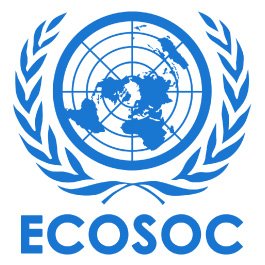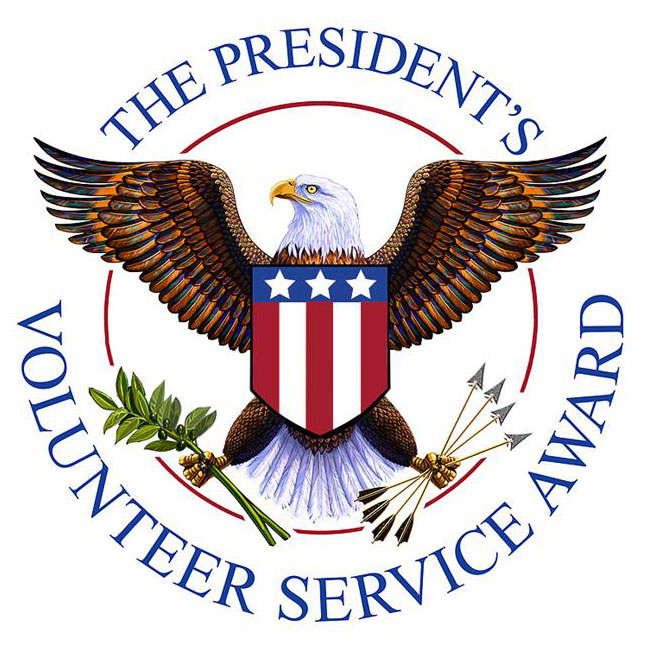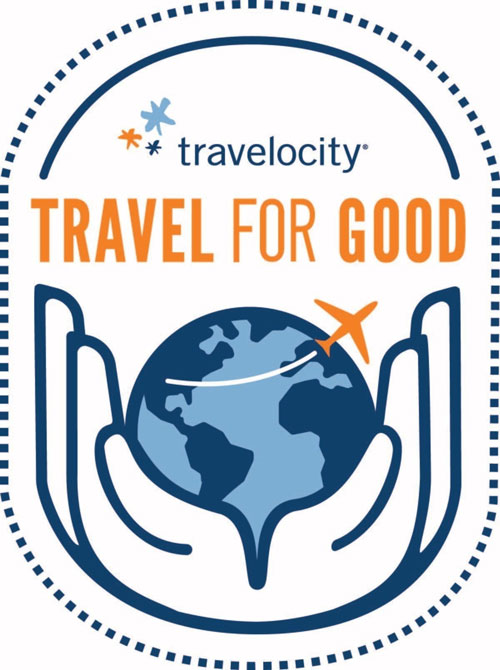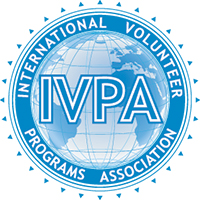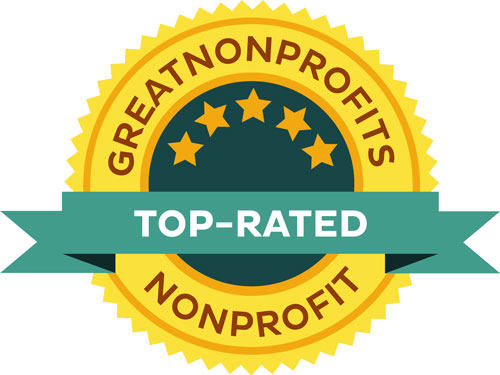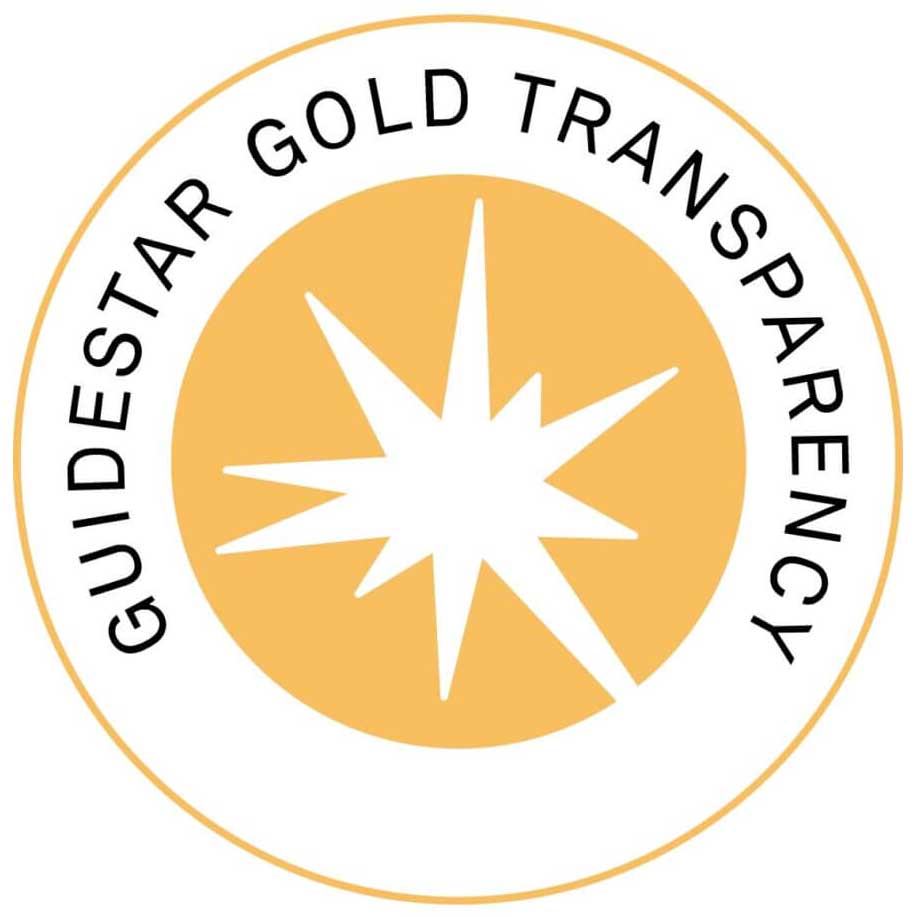Featured Articles Style 2
Featured Articles Style 2
Featured Articles Style 2
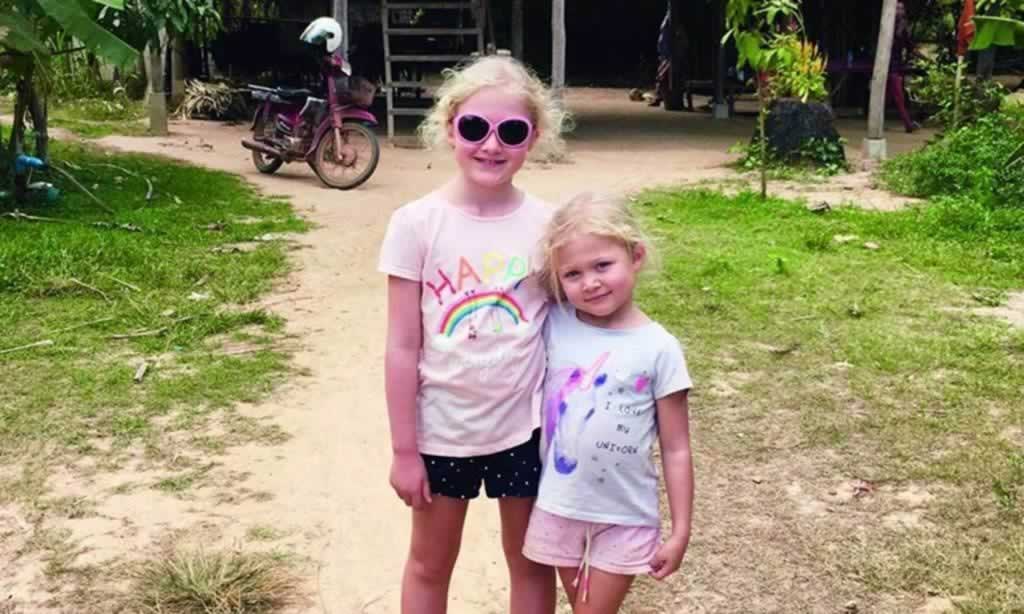
Make a difference with your family on a volunteer vacation
- Source: Time Out Dubai
Family volunteering holidays
Is your family ready to really make a difference on your next overseas trip?
By Carolyne Allmark
April 2, 2017
Nobody wants to raise spoiled, entitled kids with no sense of empathy, or any idea of how lucky they are to live a life revolving around happy school days, a lovely home and – if you’re living here in the UAE – world travel at their finger tips. And it’s exactly this desire to travel and immerse in another culture that’s presenting families with the most exciting, and potentially life-changing, opportunity to do something really useful – and to give back – with their next holiday.
Globe Aware is a non-profit organisation that plans volunteer vacations for families around the world, helping to rebuild remote communities, install clean water sources, repair roads and teach languages in some of the poorest villages, towns and cities on earth. This means children experiencing these holidays are exposed to global issues they might only learn about in the classroom.
“Few opportunities in life offer the ability to experience another culture at the same time as serving in a meaningful way and we have definitely seen an increase in young families taking volunteer vacations,” says Globe Aware’s director of communications Shanti Shahani. “We are becoming more adventurous in our travel as parents, and many families are recognising how important it is for our children to be compassionate global citizens, to appreciate their surroundings and develop an interest in helping those around them. Words and values like tolerance, inclusivity, diversity and kindness are more important now than they have been before in our generation.”
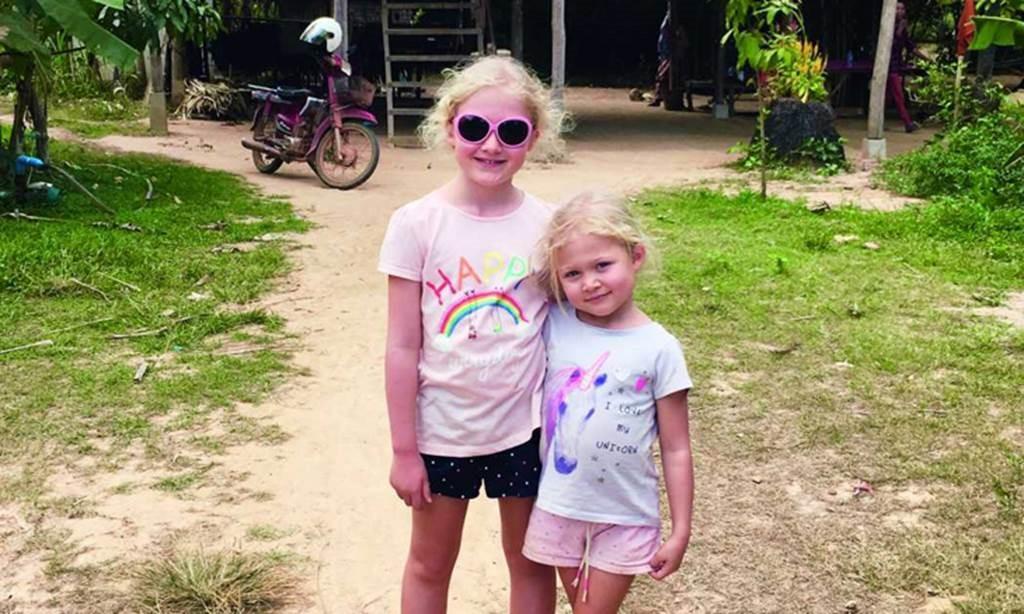 Trips vary, depending on which provider you choose, but Globe Aware cites one week as the perfect length of time for families to volunteer. It also gives you the option to enjoy travelling and sightseeing at your chosen destination. Once you’ve decided where you’d like to go, they’ll put together an itinerary – including accommodation, guides and transfers – based around the ages of your children and the kinds of activities you’d like to get involved in, or the skills you think you can offer.
Trips vary, depending on which provider you choose, but Globe Aware cites one week as the perfect length of time for families to volunteer. It also gives you the option to enjoy travelling and sightseeing at your chosen destination. Once you’ve decided where you’d like to go, they’ll put together an itinerary – including accommodation, guides and transfers – based around the ages of your children and the kinds of activities you’d like to get involved in, or the skills you think you can offer.
“Projects are adapted to volunteers and we always make a point of explaining to children why what they are doing is important,” Shahani explains. “We make sure the activities are safe and interesting, so a child may be able to help plant a tree, and they can also provide unparalleled help in teaching English as a Second Language through songs and games to kids their own age.
“This language instruction also provides future job opportunities for children in the communities Globe Aware serves,” says Shahani.
One Dubai-based family recently travelled to Siem Reap in Cambodia to visit friends who had moved there for a family gap year. Before they left, they launched a campaign at their school in Dubai Sports City, asking parents to donate toothbrushes and toothpaste for a local village school. Mum Louise Reynolds explains: “When we travel, we like to take the opportunity to teach Alula and Lana [her children] about other cultures and ways of living, hopefully instilling a bit of empathy and the desire to help others when possible.
“In Sri Lanka we took tuk-tuks into poor communities so that the girls could give pencils, notebooks and soft toys to children and were invited into a lovely family’s home as a thank you,” Reynolds recounts. “It was good for the girls to see that, although the family really had nothing, they were more than willing to share what they had with us.”The Reynolds family visited the Kompheim Community School, run by local non-governmental organisation Husk, which provides English language lessons to village children, who earn “Husk dollars” for attending the school. They can then spend those “dollars” at the school shop, where the toothbrushes and toothpaste were donated. Education is recognised as a major key in breaking the poverty cycle for future generations and, sadly, less than 30 percent of Cambodian children will complete primary school, meaning that encouraging this attendance is key.
“We saw a few schools while we were there and the girls seemed quite surprised that the government school didn’t have four walls and really was just a bit of a shack. They wondered what would happen to the kids and their work if it rained!”
Overall, however, the family really enjoyed their time in Cambodia. “But, probably the biggest thing they’ve come away with is the absolute shock that people over there fry and eat bugs. I tried bribery, but they were adamant they weren’t going to sample any!” laughs Reynolds, who also tells us she’s already looking into their next volunteer trip, helping to rebuild schools in Kathmandu, Nepal, which were destroyed after the 2015 earthquake.
Aside from India and the Far East, other popular locations for volunteer travel are Costa Rica, Mexico and Guatemala. But researching before you book is crucial, as Shahani points out. “Make sure you go with a registered non-profit organisation so there’s transparency about exactly how your money will be spent. Ask if they are a member of the International Volunteer Programs Association and talk to past volunteers.”
It’s also important to remember that projects shouldn’t take work away from local people and should be fulfilling a genuine need in a community. And families with young children should think about the overall travel time to get to their chosen destination and ensure they have all the relevant vaccinations.
“I would say there is no better way to truly immerse yourself than to work alongside members of the community as equals, in projects that are important to them, to be able to truly appreciate the beauties and challenges of another culture,” Shahani adds.
“No other tourist experience can truly provide that and being able to experience that with your family is an opportunity comparable to none.”
What are you waiting for? It’s time to start collecting those dirhams (for others).
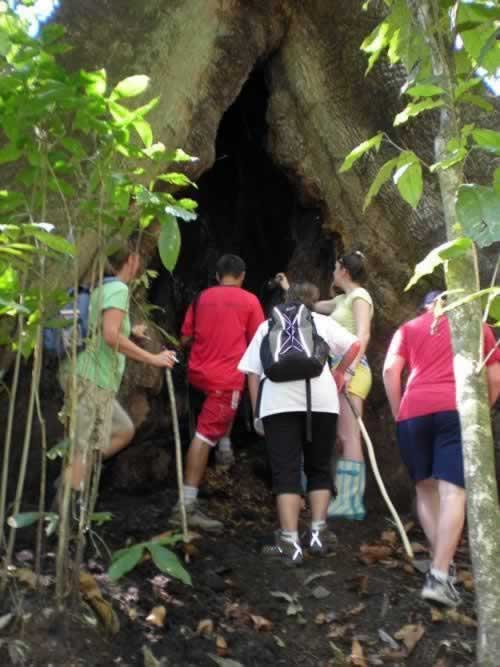
Globe Aware named one of top eco-travel providers
- Source: Greenmatch
Globe Aware named a Top Eco-Travel provider for 2017
In its annual list, GreenMatch, an online service which provides you with quotes for green energy products from multiple providers, identifies sustainable and environmentally-friendly ways of travelling and recognizes Globe Aware for the work done in many countries around the world:
"Traveling is an exciting and eye-opening adventure that many individuals and organisations like to partake in. However, many travelers are unaware of the carbon footprints that they leave behind when they visit, and that can be harmful to these communities and countries.
Fortunately, as environmental awareness and engagement gain popularity, there are a growing number of individuals and organisations that travel sustainably. This means that they are engaging in ecotourism activities, giving back to the environment in community projects, reducing their overall carbon footprint and much more!
After extensive research by the GreenMatch Team, we have nominated and selected the Top Eco-Traveling Enthusiasts of 2017."
Globe Aware is recognized for "Sustainable Voluntourism"
Learn more here
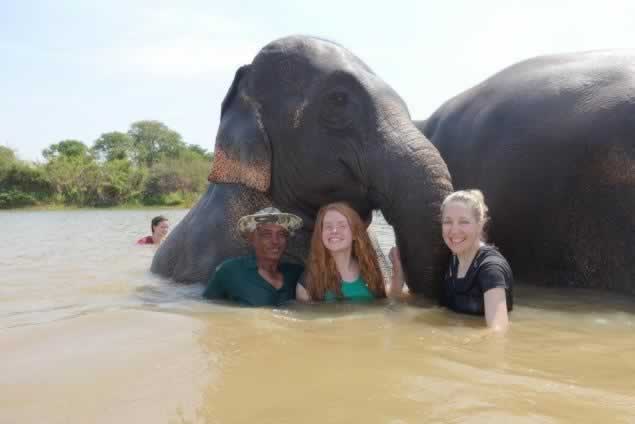
Volunteer in Thailand with Globe Aware
- Source: University at Buffalo
Kris Depowski O'Donnell
Kris is an education and communications professional, teaching at the University at Buffalo and working as a field producer providing medical reports to more than 100 television stations around the country. She loves making a difference through international volunteer work.
Why did you choose this program?
Globe Aware offered a program that helps better the lives of captive Asian elephants. With this program, unlike some others in Thailand, the elephants' welfare is front and center at all times.
What did your program provider assist you with, and what did you have to organize on your own?
Globe Aware provided detailed descriptions of the project and outlined what volunteers should expect and bring with them to Thailand. They suggested hotels for me in Bangkok that were close to the meet up point and assisted with a reservation that I had an issue with. I took care of finding a hotel near the airport (flights from the U.S. almost always land around midnight and depart in the early morning hours).
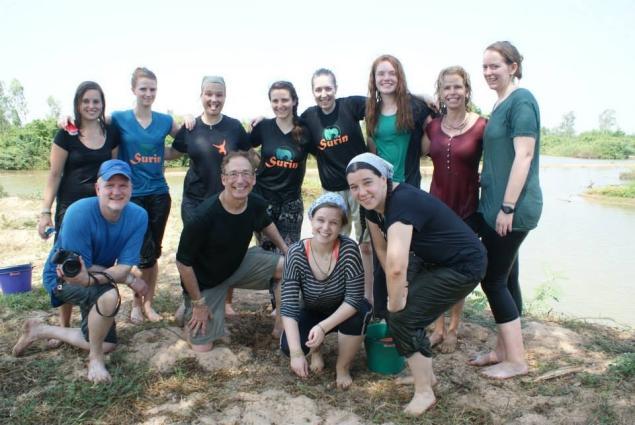 What is one piece of advice you'd give to someone going on your program?
What is one piece of advice you'd give to someone going on your program?
For this particular program, there wasn't much I didn't already know prior to arriving in Thailand because Globe Aware prepared me so well and I did a lot of research on my own as well. For friends who are thinking of going abroad I tell them GO! You will never regret it as long as you have an open mind, a sense of adventure (and humor) and love learning new things.
What does an average day/week look like as a participant of this program?
The days at Surin Project are well-coordinated. Everyone has breakfast together around 7 am. The food is freshly prepared and delicious. I'm vegan and they could easily accommodate my needs. We then have a work project for about an hour or so, which includes cleaning enclosures and chopping sugar cane. Then we walk the elephants in the forest for an hour or so. Then there's a break for lunch at a local eatery, then an afternoon work project followed by another walk in the forest where the elephants get to hang out with their friends and enjoy being elephants. We end the day by having dinner together. On two of the days, we walk the elephants to the river to bathe them, one of the highlights of the experience.
Going into your experience abroad, what was your biggest fear, and how did you overcome it and/or how did your views on the issue change?
I have traveled extensively through Europe, mainly on my own, so my fears were relatively limited. I think the biggest reservation I had was that I had never been to Asia (and was traveling on my own). I was also traveling to a very remote part of Thailand to work in a village with no air-conditioning, indoor plumbing, showers or hot water.
The way I overcame the fear is by reading as much information as I could ahead of time about what to expect and making sure I had the proper travel shots, medication, etc. Knowledge is power.
Is there anything else you'd like to share with prospective volunteers?
There is one important thing to know and it's something I've been asked about. Travelers should educate themselves about the plight of captive elephants in Thailand. It is a sobering and complicated issue. Elephants in Surin Project are allowed off chains for at least 5 hours a day and mahouts are not allowed to use the bullhook. But the Project exists alongside elephants who are used for the local circus. These elephants are chained 24 hours a day (when they are not performing), sometimes by all four feet.
It's difficult emotionally at times to see them in these conditions but I remind myself (and tell prospective volunteers) that it's critical the Project continue to receive support from volunteers. It shows the local people that tourists want to see elephants treated humanely and interacting with each other in a natural environment. I have taken part in Surin Project every year for the last three years so there isn't anything I would have done differently.
I can say that on the first day of my first visit (in 2014) I sat on my bed, on the floor, in 100 degree heat, with only a fan and mosquito netting and thought 'what in the world have I just done!?! I can't survive this!' Fortunately, that feeling lasted less than 24 hours. Then I was hooked. But it was briefly terrifying!
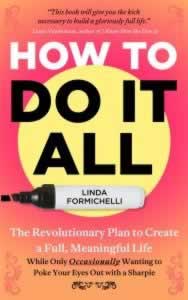
How to Do It All including volunteer vacation
 Writer Linda Formichelli's new book "How to Do It All: The Revolutionary Plan to Create a Full, Meaningful Life — While Only Occasionally Wanting to Poke Your Eyes Out With a Sharpie" has a chapter on volunteering and features Globe Aware as one of the resources.
Writer Linda Formichelli's new book "How to Do It All: The Revolutionary Plan to Create a Full, Meaningful Life — While Only Occasionally Wanting to Poke Your Eyes Out With a Sharpie" has a chapter on volunteering and features Globe Aware as one of the resources.
Formichelli considers the fact women want to do, see, and experience everything they can to create a rich, memorable life, including rraveling, volunteer work, athletic events, entertaining, reading, learning, and trying new things but life and responsibilities get in the way.
She offers a plan on how to do it all:
- Why stress should be welcomed, not avoided.
- The importance of living a do-it-all life.
- Why you shouldn’t expect support from your family…and where to get it instead.
- Why you should shower less, sleep less, talk to yourself, and be inconsistent — and how this can help you live a more memorable life.
- How you can get it all done even when right now you have no time, no money, and no motivation.
- The revolutionary plan to accomplish everything you dream of doing in your life (includes free worksheets!).
Voluntourism comes to Cuba via Dallas
- Source: Lakewood Advocate
Globetrotter Kimberly Haley-Coleman takes East Dallasites around the world
By Brittany Nunn
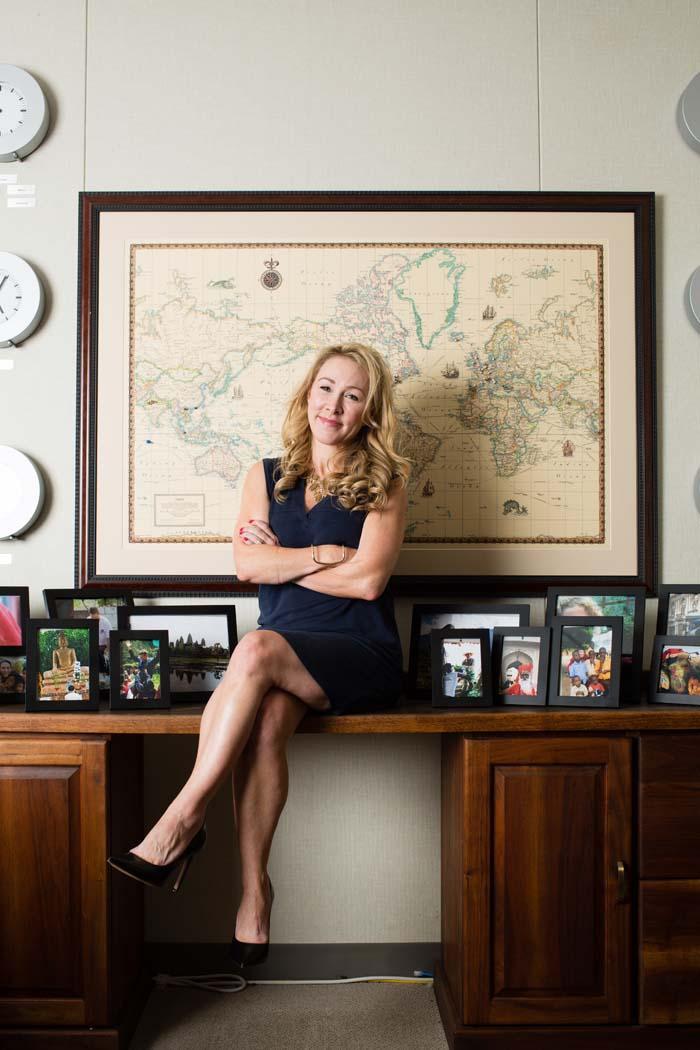 As the Obama administration eases travel restrictions to the long-exiled island of Cuba, millions of Americans are preparing to flock there in the upcoming years. Among those celebrating is Kimberly Haley-Coleman.
As the Obama administration eases travel restrictions to the long-exiled island of Cuba, millions of Americans are preparing to flock there in the upcoming years. Among those celebrating is Kimberly Haley-Coleman.
Haley-Coleman, a multigenerational Lakewood resident, is the founder and director of Globe Aware, an organization that takes groups to countries for short-term, volunteer-centric trips.
It’s “voluntourism” at its best, taking people into 17 countries from Costa Rica to Cambodia, and Haley-Coleman is especially excited to add Cuba to her list.
Since the ’50s, when tension between the United States and communism reached its Cold War boiling point, Americans largely have been banned from traveling to the island nation, which sits less than 500 miles from U.S. soil. Cubans, conversely, have been banned from purchasing any American products, which has had a chilling effect on its fragile economy. Conflicts have since cooled, and the Obama administration has worked to lift some of the remaining restrictions, especially allowing for freedom of travel.
“Cuba is undergoing huge changes right now,” she says, “And of course, there are people who don’t like it, but Cuba is crumbling, and it has been crumbling since the Cuban Revolution. Well now the restoration process is happening again.”
[widgetkit id=139]
Which is exactly what Haley-Coleman wants to be part of, particularly because she understands the importance of cultural sensitivity. To her, work trips aren’t about going into other countries with an egotistical hero complex; they’re about helping in any way possible, while also giving neighbors an opportunity to immerse themselves in an unfamiliar culture.
“We can learn from each other,” Haley-Coleman says. “It gives us a chance to look at the beauties and the challenges of our own culture compared to the beauties and the challenges of others.”
In the 15 years since Globe Aware was founded, Haley-Coleman’s give-and-take mindset has attracted thousands of East Dallasites to travel with Globe Aware. Each trip is 10 days long and includes a task, such as assembling wheelchairs for landmine victims or helping schoolchildren.
“In Cuba, we’re fixing up playgrounds, working in elderly homes and working in schools,” she says. “We don’t go into places and tell them what they need. We ask them, ‘What is your challenge? How can we help you?’ And those are the projects that we do.”
Interested in participating in a trip to Cuba or another country? Go to globeaware.org.
- See more at: http://lakewood.advocatemag.com/2015/10/23/globetrotter-kimberly-haley-coleman-takes-east-dallasites-around-the-world/#sthash.Sm3czx56.dpuf
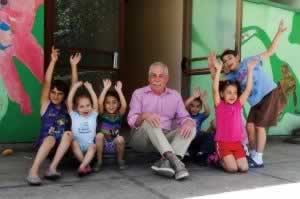
Difference Maker
- Source: The Christian Science Monitor
Ian Tilling, a retired British policeman, went to Romania to help children in need. His nonprofit Casa Ioana is a place where women and children can go to feel safe and learn how to rebuild their lives. Ian was so inspired and pleased with the impact and success of his efforts, he never left Romania. Here is his story from the The Christian Science Monitor.
World People Making a Difference
By Kit Gillet, Correspondent
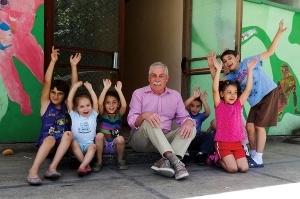 Bucharest, Romania — It’s been a journey to Romania of a quarter-century-and-counting for Ian Tilling. During that time he has been instrumental in setting up long-term shelters in Bucharest, the capital, initially for orphans, later for the homeless, and later still for families suffering from domestic abuse.
Bucharest, Romania — It’s been a journey to Romania of a quarter-century-and-counting for Ian Tilling. During that time he has been instrumental in setting up long-term shelters in Bucharest, the capital, initially for orphans, later for the homeless, and later still for families suffering from domestic abuse.
Casa Ioana, which he founded 20 years ago, recently opened a second night shelter in Bucharest, where women and children can go to feel safe and start to rebuild their lives. The charity is also about to roll out a series of courses to help recovering women develop job skills.
“Without a job the chances of changing the situation [for these women] is quite remote. The only way out really is through employment,” says Mr. Tilling, sitting in the historic Old Town neighborhood in the heart of downtown Bucharest.
Recommended: 11 quotes from difference makers
Tilling, a retired police detective from England, first came to Romania after seeing disturbing televised images of institutionalized children that were broadcast around the world following the Romanian revolution in December 1989.
“My wife asked me if I had seen the pictures coming out of Romania, the awful images of children languishing in orphanages,” says Tilling, explaining his first glimpse of the country that would come to dominate his life.
Within six weeks he and a British nurse had gathered up supplies and were driving across Europe in a borrowed van filled with donated baby food, diapers, toys, and medicine. They ended up at an orphanage called Plataresti, a “hellhole 40 minutes drive outside Bucharest,” Tilling recalls.
At Plataresti, Tilling was asked to help with a group of twenty 7- to- 9-year-olds who lived together in one room. Their cots were lined up 10 on each wall “like a row of prison cells” and the children never left them, he says. Most were still being bottle fed. The smell was awful. Tilling was tasked with talking with the children and keeping them clean, neither an easy task.
“For the month I was working there I was numb,” he says. Yet during the drive back across the Continent to Britain he decided he must go back to Romania. A little while later he did return, this time with 298 other people and a convoy of 100 trucks with supplies.
At the time of his first visit Tilling had been coming to the end of a long police career and wondering what to do next.
“I joined the police at 16 as a cadet. It was all I knew,” he says. He was living in the south of England with his wife and four children. Then in 1991 his eldest son, just 19, died in a motorbike accident and Tilling’s life fell apart.
In 1992 he took early retirement and moved to Romania to run a British charity he had established to provide lifelong care to some of the children from Plataresti.
“Looking back I was clearly escaping the hurt I felt back home,” he says.
However, rather than helping to heal his pain the project proved to be a nightmare itself, with the Romanian government breaking promises and officials demanding bribes. He was left trying to manage a small apartment block in Ferentari, a district of Bucharest that was fast becoming a ghetto inhabited primarily by desperately poor Roma (commonly called Gypsy) families.
“It was all unraveling, and my personal demons were coming to the front, and I was having to deal with that, too,” Tilling says.
In the winter of 1994-95 he lived with 300 Roma families in a collection of dilapidated apartment buildings. To top it off his marriage was breaking up.
“It was the lowest point in my life, but I was fortunate in that I finished my grieving process,” he says today.
Near the end of that winter friends gathered to urge him to leave, even going so far as collecting money for his plane ticket. But he didn’t want to return to England defeated. Instead he regrouped, creating a new charity – a Romanian one – that would pick up where the British charity had left off.
Casa Ioana was born. Over the next few years it became a halfway house for formerly institutionalized young adults and a resource center that helped local organizations set up a school for children with profound disabilities, as well as a kindergarten for local Roma families.
In 1997 Tilling was approached by the mayor of Bucharest with a request to open a night shelter for homeless men, who had become a growing problem in the city. He eventually agreed after the mayor offered to supply a building to house the shelter.
It opened as an emergency shelter for homeless men. But after a few years Tilling noticed the large number of women who came looking for a place to stay together with their children.
Recognizing that the system was failing these families at a time when they needed to keep together he refocused his efforts. Today, Casa Ioana is the largest provider of temporary shelter for survivors of domestic abuse in Bucharest. “I do what I do out of a profound sense of justice,” he says. “I hate to see people suffering.”
Those who know Tilling say he works day and night. “He is a one-man tornado,” says Nigel Bell, a British expatriate businessman who volunteers his time and expertise to Casa Ioana. “He tries to do everything himself; it is absolutely personal to him.”
Despite having the title of president of Casa Ioana, Tilling is often found painting the walls or cleaning the toilets.
Women and children who arrive at the shelters are left alone for the first few weeks. When they are ready they sit down with members of his team, which includes psychologists working pro bono, to develop a plan for moving forward.
Families can stay for as long as a year but Tilling says the vast majority move on within six to eight months. The women get jobs and are able to afford their own places, he says.
Casa Ioana perpetually faces challenges of space and money. It has room for 20 families and nine single women; last year it had to turn away 200 families. “We simply didn’t have room,” Tilling says.
His charity has a budget of about $100,000 a year; 80 percent of its funding comes from private donors and 20 percent from the Romanian government. It employs six staff members. Tilling himself takes no salary and lives on his British pension.
“Ian keeps us together. He brings people in from outside, and he opens the right doors,” says Monica Breazu, one of the social workers employed at Casa Ioana.
Parts of Romania are very traditional, and domestic abuse is often swept under the rug. Women who break away from abusive relationships and end up at Casa Ioana are likely to have been almost completely reliant financially on their husbands.
“Many haven’t got high school diplomas, and without that they can’t access formal training,” Tilling says. “So we created the opportunity for them to return to school. We give them the equivalent of a minimum salary in order to study.” Casa Ioana is also developing a financial-literacy program and six other courses that cover what employers will be looking for from new hires.
Tilling’s journey has never been easy. In 1998 the first Casa Ioana was ransacked by outsiders; everything was stolen right down to the fixtures and electrical wiring. “There were many occasions when I was close to saying enough is enough,” he says. “I’ve invested so much of myself. The good thing was I literally had nothing to go back to, so that was a good incentive to persevere.”
In 2000 Tilling was honored with an MBE from Queen Elizabeth II, shortly after Prince Charles visited Casa Ioana. Two years later he was awarded Romania’s equivalent.
Tilling knows that eventually he’ll have to pass the responsibility for Casa Ioana along to someone else. But it appears that it isn’t going to be anytime soon.
How to take action
Universal Giving helps people give to and volunteer for top-performing charitable organizations around the world. All the projects are vetted by Universal Giving; 100 percent of each donation goes directly to the listed cause. Below are links to groups that help children worldwide:
- Globe Aware helps people and communities prosper without becoming dependent on outside aid. Take action: Volunteer to work helping the underprivileged in Romania.
- Eastern Congo Initiative works with the people of eastern Congo, where local, community-based approaches are creating a sustainable society. Take action: Support access to education for girls in eastern Congo.
- Half the Sky Foundation enriches the lives of orphans in China, offering loving, family-like care. Every orphaned child should have a caring adult in his or her life. Take action: Help a teen in Half the Sky’s youth services program.
Page 6 of 25
